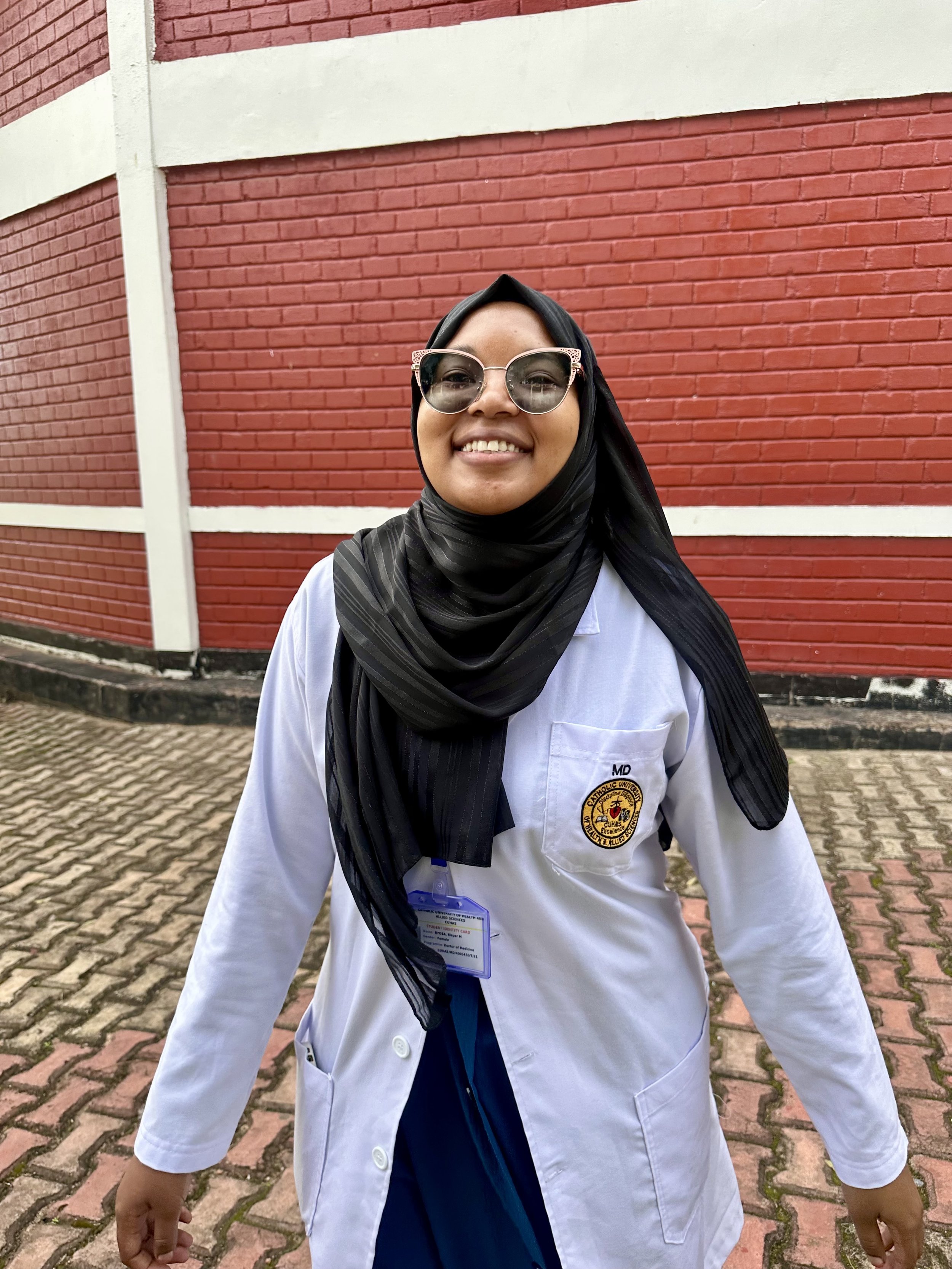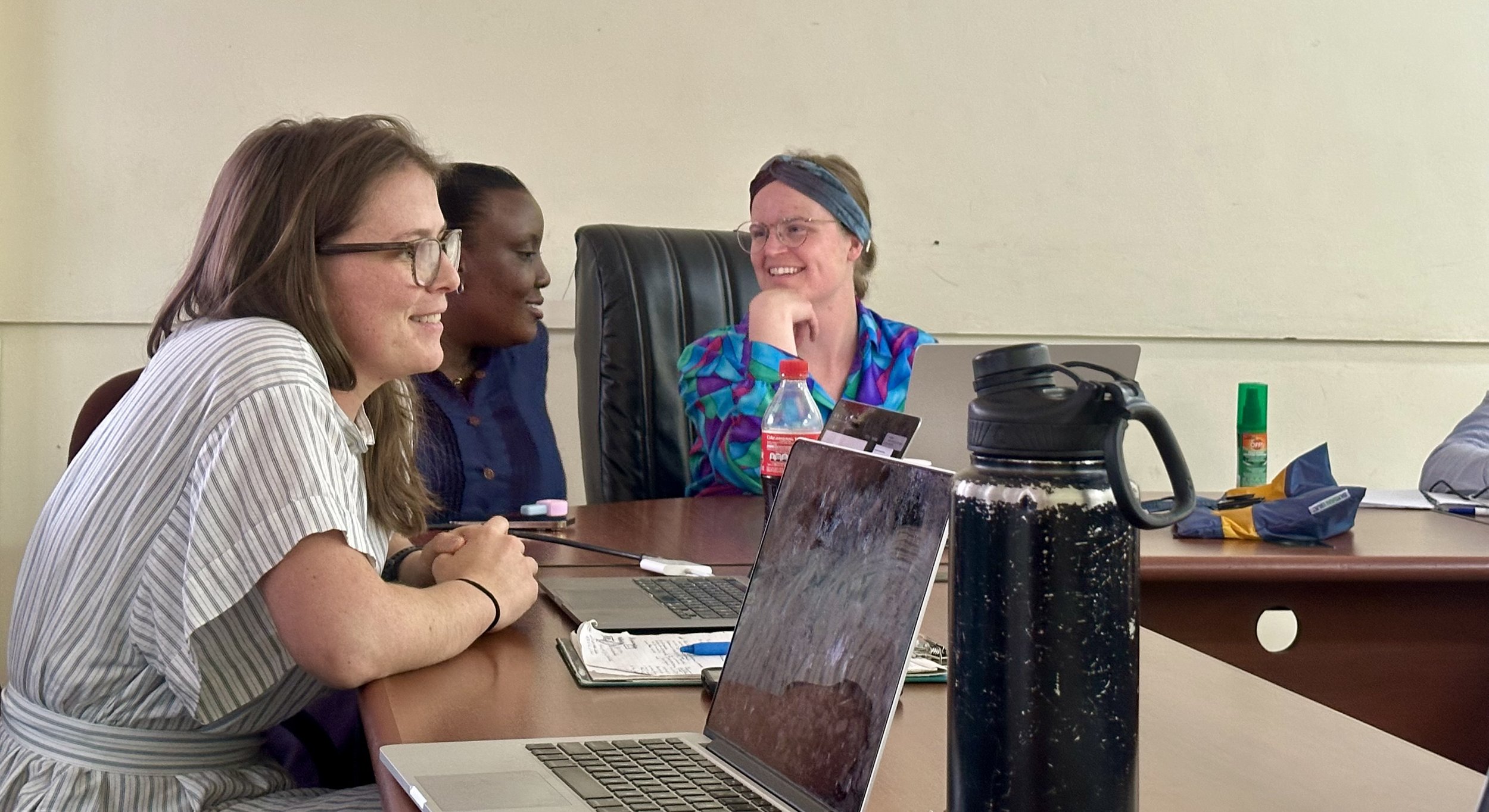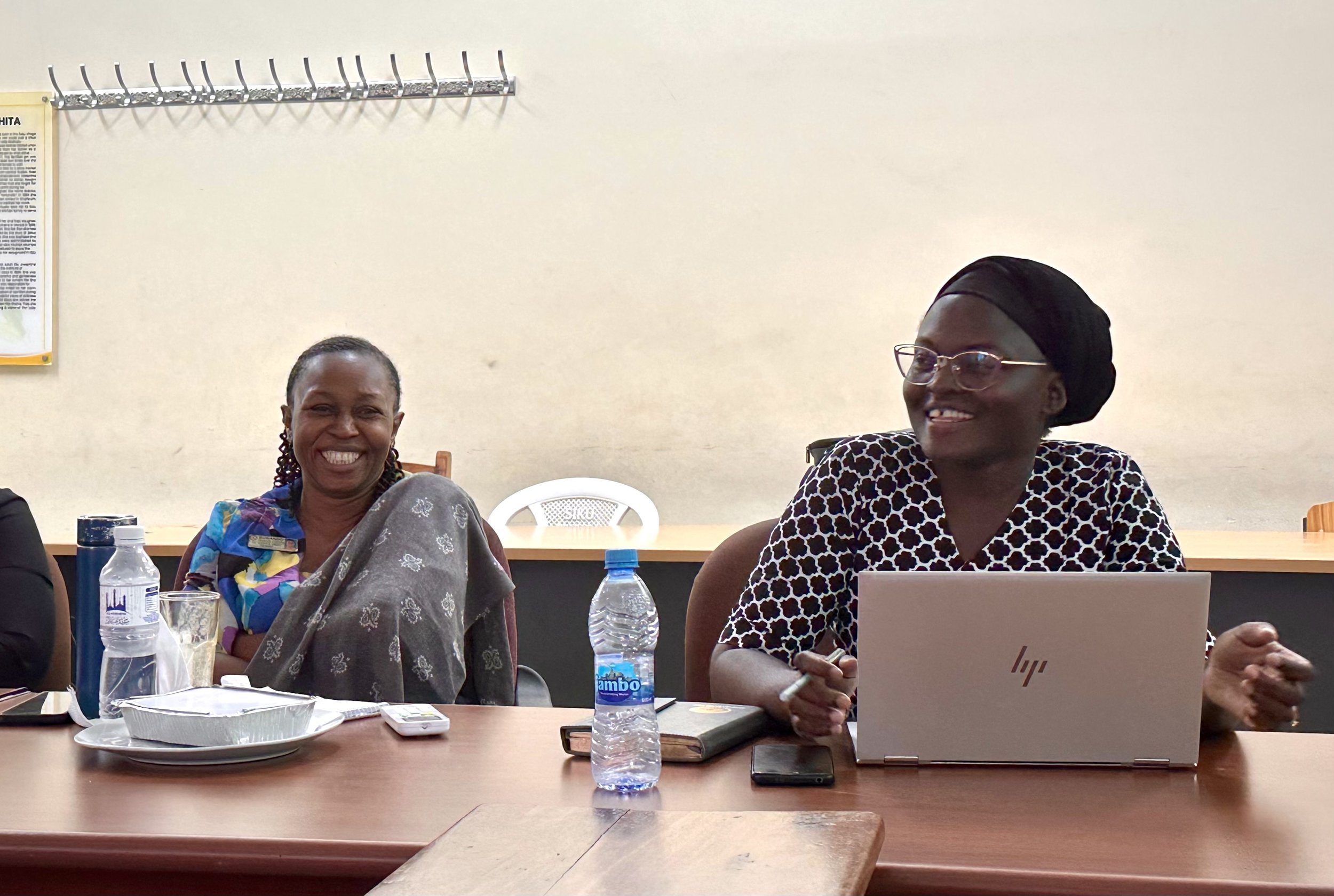Kolabo 2025: Day Three Blog
Insights from Medical Students 🧑⚕️👩⚕️
Our morning began with the daily Clinical Meeting. Following this, we had the pleasure of spending time with two fourth-year medical students, Rispa and Samson, currently on their Psychiatry rotation.
“You don’t have to go through a bunch of tests to diagnose someone. You just need to listen to them.”
.
Samson, who is still exploring his career options, expressed a deep appreciation for the holistic approach Psychiatry and shared what draws him to the field.
“What I like most about Psychiatry is the perspective of dealing with the patient — it’s so broad. We learn about the biological being of the patient along with the psychological. We deal with many things, not just treating the patient like a machine.”
At CUHAS, undergraduate Psychiatry education includes both classroom-based learning and hands-on clinical exposure through inpatient ward work and outpatient clinics. Some students even choose to come in on weekends to deepen their knowledge by spending more time with patients.
We also explored the challenges and stigma associated with choosing Psychiatry as a specialty. The students noted a general lack of awareness about mental health in the wider community. Currently, the Mental Health Unit at Bugando Medical Centre serves more than five regions, including Kagera, Mwanza, Shinyanga, Simiyu, Tabora, Mara, and Kigoma — a huge catchment area for a single service.
Internal Medicine & Psychiatry 🩺
Next, we attended a lecture on Mood Disorders delivered by Internal Medicine residents currently rotating through Psychiatry. The session, facilitated by Dr. Catherine (Head of the Psychiatry Department), covered differential diagnoses, pathophysiology, epidemiology, clinical features, and treatment principles for major mood disorders.
It was inspiring to see Internal Medicine residents engaging so meaningfully in psychiatric education, given the links between physical and mental health.
Neuropsychiatry 🧠🔍
In the afternoon, Dr. Liz Merner led an excellent session on Neuropsychiatry, covering topics such as movement disorders, extrapyramidal symptoms, epilepsy, and traumatic brain injuries. This session was particularly relevant in the Tanzanian context, where typical antipsychotics are more commonly used due to cost and availability. While atypical antipsychotics like quetiapine and olanzapine are available, their use remains limited by financial and resource constraints.
Neurostimulation: Present & Future ⚡
To close the day, Dr. Paige Durling led an engaging presentation on Neurostimulation, including Electroconvulsive Therapy (ECT) and repetitive Transcranial Magnetic Stimulation (rTMS).
Although these technologies are not currently available in Mwanza, many CUHAS psychiatrists received ECT training during their residency and are familiar with its use. There was thoughtful discussion around how such treatments might be implemented in the future as resources expand.
Dr. Agnes Hauli and Dr. Rahel Ndola, Psychiatrists and Lecturers from CUHAS









